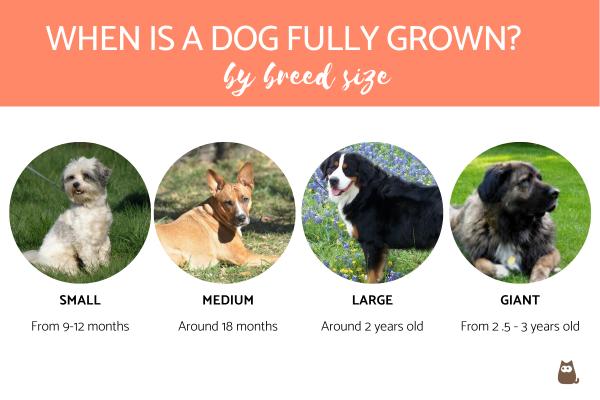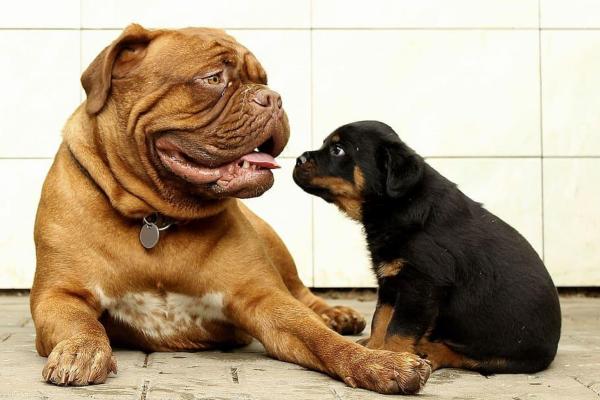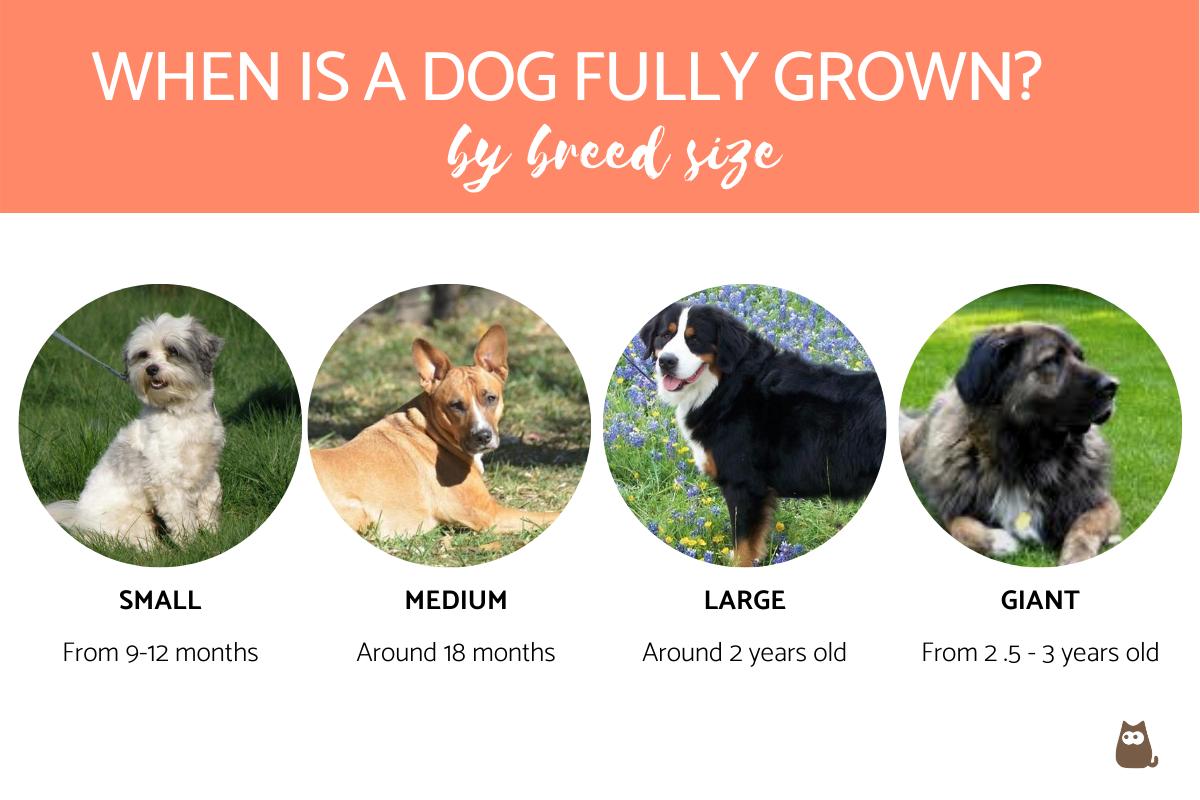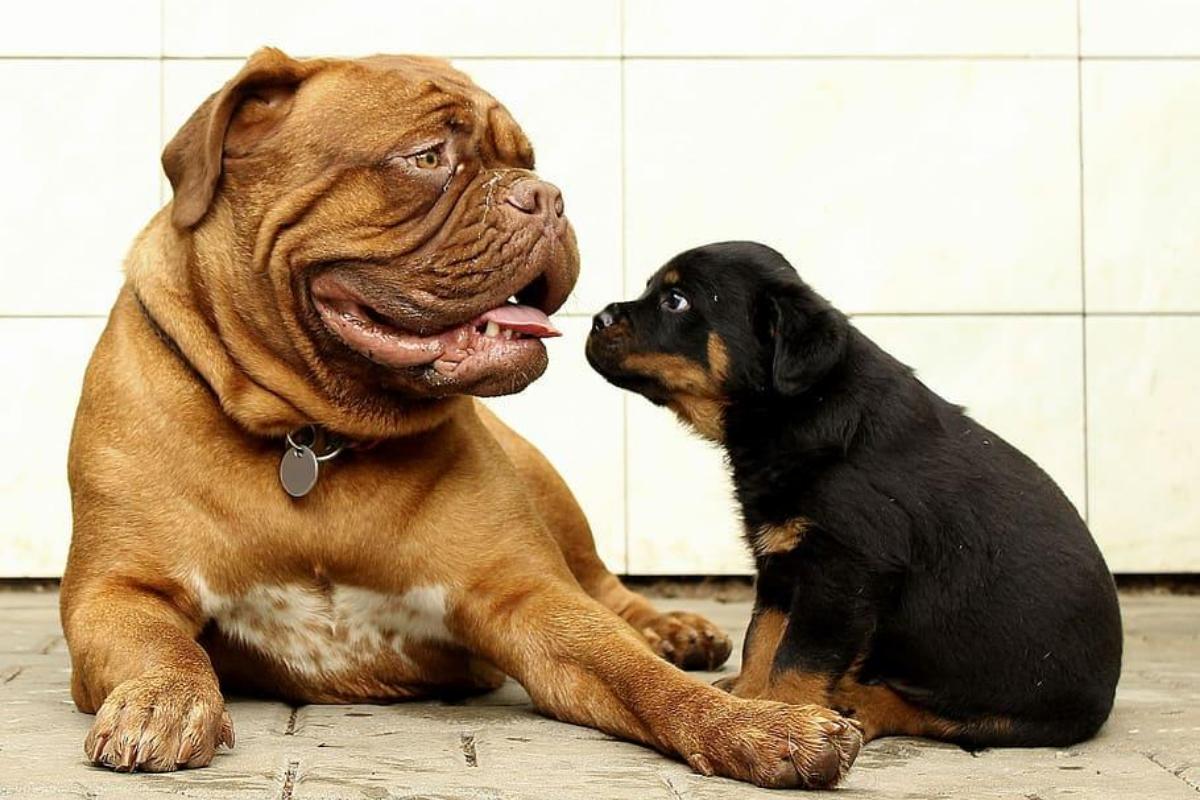When Is a Dog Fully Grown?



See files for Dogs
Have you adopted a puppy? Watching them grow up is one of the most beautiful things to be part of, especially as our relationship with them grows overtime. But, when is our puppy a full grown adult?
In this AnimalWised article, we're going to talk about the stages a puppy will go through and when your dog is fully grown. Continue reading to learn more!
When a dog is fully grown into an adult
When determining if your puppy has grown into an adult, we need to take their breed's size into account. Small-sized breeds will develop into adults faster than larger-sized dogs. Therefore, you will first need to determine the size of your dog's breed. It can be small, medium, large or giant.
Check out our chart that will help you know when your dog has matured into a fully grown adult by their breed size:
- Small sized dog breeds: from 9-12 months
- Medium sized dog breeds: around 18 months
- Large sized dog breeds: around 2 years
- Giant sized dog breeds: around 2.5-3 years
Changes from puppyhood to adulthood
When your dog is growing from puppyhood to adulthood, they will go through many changes. As their caregiver, it's important that you also understand what the transitional stages consist of. Here are the stages between puppyhood to adulthood:
- Puppyhood: starts at birth
- Adolescence: starts around 6-18 months
- Adulthood: starts between 12 months and 3 years of age
- Senior years: starts between 6 and 10 years of age
Puppyhood
Puppyhood begins at birth and continues until 6-18 months of age. In this stage puppies will need lots of attention, patience and care. This is also an important stage for socialization that will influence their temperament as adults.
When it comes to diet, puppies will begin weaning at around the age of 3-4 weeks old. This way, they will slowly transition to solid food. Learn more in our article about weaning puppies and their diet.
Other than socialization, you can also begin to train your puppy in this stage. A great first step is to paper train them as puppies will need to learn how to control their bladder for when they go on walks. We also have plenty of articles and YouTube videos on training and caring for a puppy so we encourage you to also check those out.
Adolescence
Adolescence starts at 6-18 months and ends at the age of 1-3 years, depending on the breed. This stage is all about changes, just like for us. Your dog, wether male of female, will go through hormonal changes. They'll also go through growth spurts that may cause them some pain. Chew toys, for example, will alleviate them of the pain of their adult teeth settling in.
In this stage, we want to take them out on regular walks but we should avoid an extreme sport that could cause them harm as they're more prone to injury. Also, make sure they have a high quality diet to help them grow strong. Learn more in our article about the best natural diet for dogs.
Your young dog will need lots of training, walks and mental stimulation. One great way to achieve this is through intelligence games. This is very beneficial for your dog's development and also, when done in though positive reinforcement, it encourages you two to create a greater bond.

Adulthood
starts between 1-3 years of age and continues until they are 6-10 years old, depending on their breed size. In this stage your dog will have plenty of energy and, if they had proper socialization as a puppy, will also have a balanced temperament. In this stage we need to make sure their diet adequate for their nutritional needs.
We also need to remember to take them for regular check ups to the veterinarian, especially as they grow up since they will slowly become more prone to health issues due to older age. Remember to always keep up with their deworming and vaccination schedule.
Senior Years
A dog's senior years starts between 6-10 years of age. In this age they will begin to be less active as they were in adulthood. They may also have a lack of appetite due to their lower activity levels. In these years, we need to be patient with them and be attentive just in case they have any abnormal behavior that may indicate that they're experiencing some type of health issue.
Different breeds will be prone to different types of diseases or health issues, we need to make sure we bring out dog to the veterinarian for regular check-ups and that we notice any strange behavior.
If you're still not sure whether your puppy has fully grown into an adult, visit your local veterinarian who will be able to estimate how old your dog is and further explain their needs to you. We also encourage you to watch our Youtube video about when do dogs stop growing.

If you want to read similar articles to When Is a Dog Fully Grown?, we recommend you visit our What you need to know category.
- Hubrecht RC. Enrichment in puppyhood and its effects on later behavior of dogs. Lab Anim Sci. 1995;45(1):70-75.






